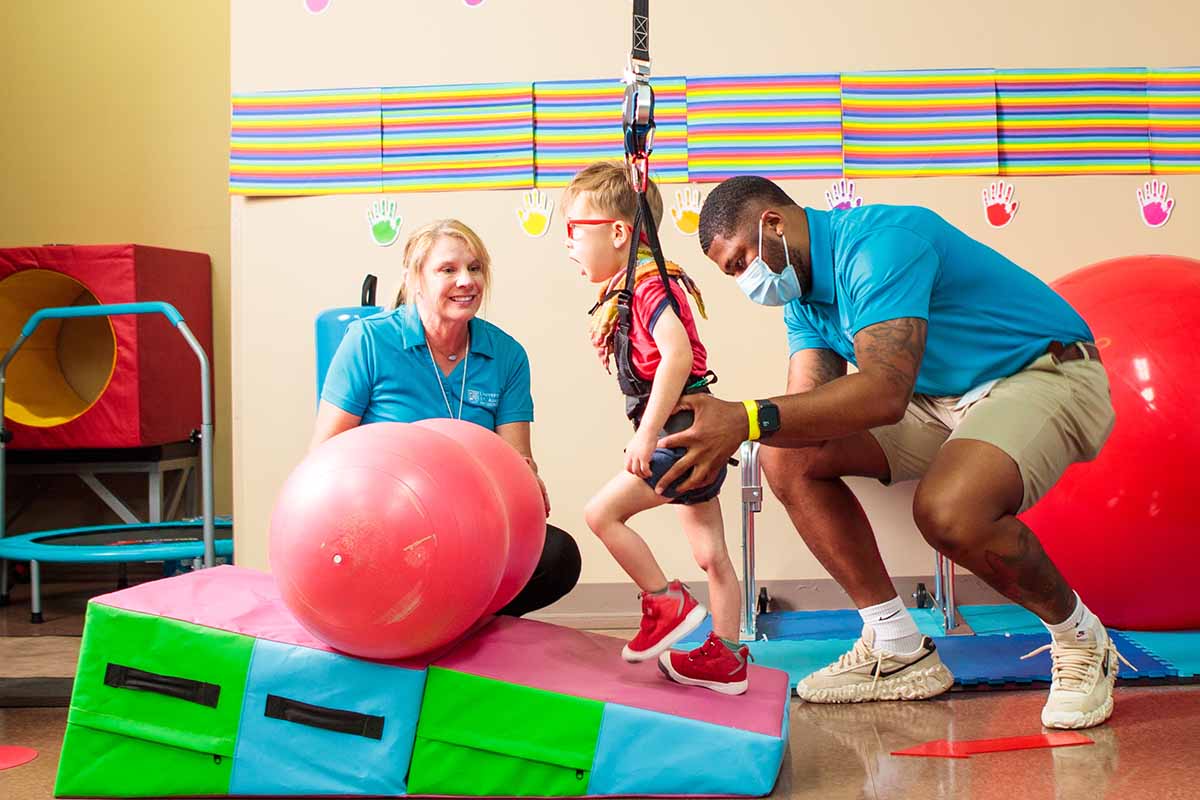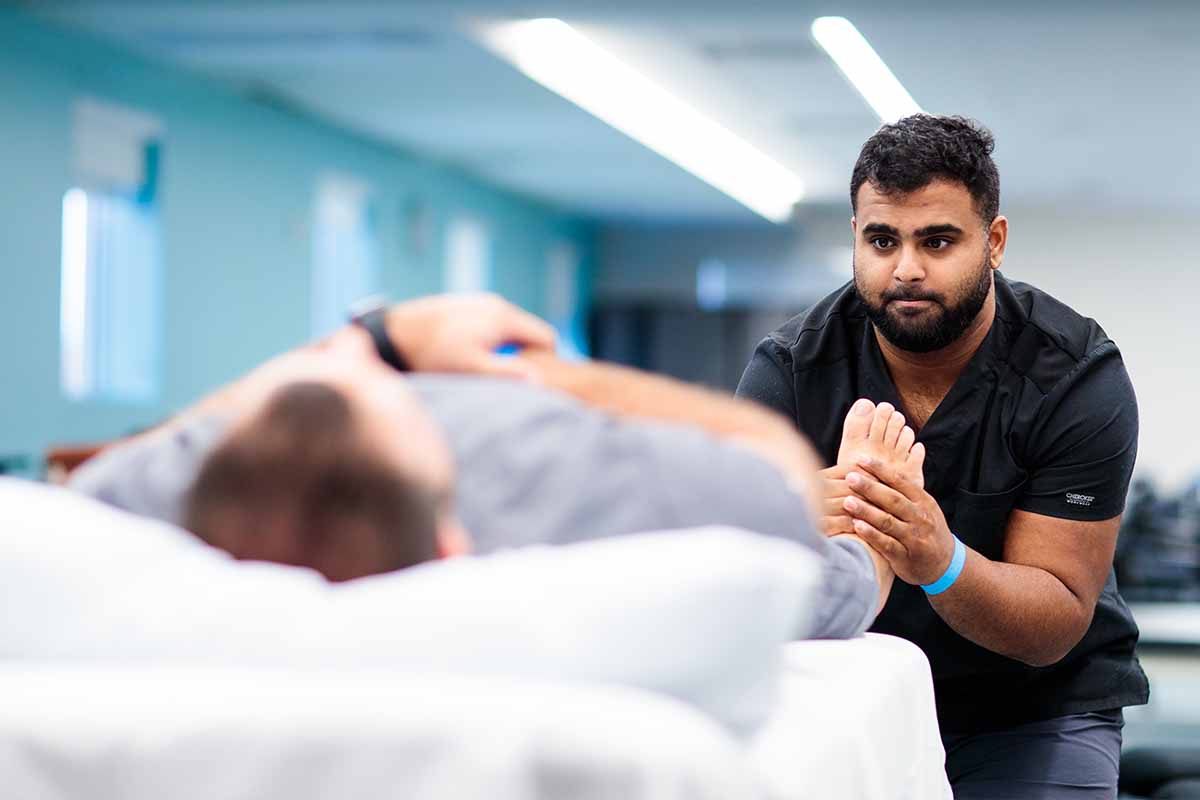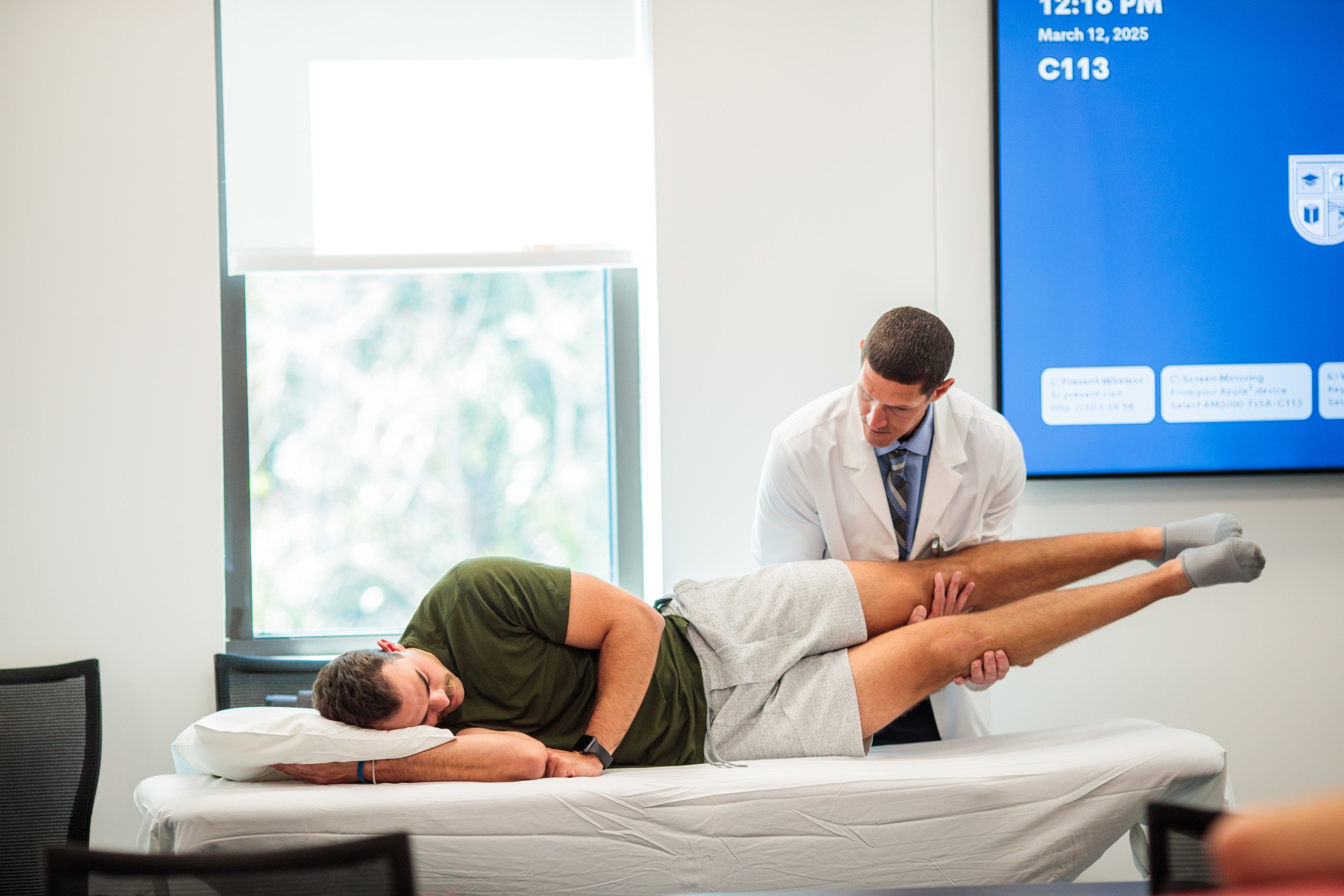
What tops your list of considerations for a career path—is it job satisfaction, potential earnings or the opportunity to help others? One of the first lessons you may have learned from a guidance counselor is to choose a career path with employment opportunities.
In the field of healthcare, is physical therapy (PT) a good career? The high level of demand for it makes physical therapy as a career very promising.1
Let’s review eight pros of being a physical therapist (PT).
What are the Benefits of Being a Physical Therapist?
#1: Plentiful Jobs Ahead
One of the main benefits of being a physical therapist is job security. According to the U.S. Bureau of Labor Statistics (BLS), PT jobs are expected to grow by 15% from 2022 to 2032, opening up about 13,900 roles annually.1 This is much faster than the average growth rate across all occupations in the United States.
#2: Excellent Income Potential
Another one of the pros of being a physical therapist is salary. As of May 2023, $99,710 was the median annual salary for PTs across the U.S., and the highest 10% of physical therapists earned more than $130,870 annually.2
Earning potential is influenced by:
- Location
- Job role
- Years of experience
- Specialization
Learn the highest-paying physical therapy specialty, and the determining factors for PT salaries and the ideal states for physical therapists.
#3: Help Improve Lives
Why become a physical therapist? You can impact the well-being of others.
Practicing PTs connect with patients to establish a treatment plan, help them learn or relearn tasks and identify ways to modify movement and environments to facilitate their needs. You will empower patients in their daily lives and help them to:3
- Increase independence
- Achieve fitness goals
- Improve strength and function to live active lives

#4: See Tangible Results
Monitoring patient progress is a key part of working with patients. As a licensed physical therapist, you’ll measure and observe improvements in patient functionality, comfort and abilities. As one of the pros of being a physical therapist, a first-hand view of your impact inspires motivation and professional validation.
#5: Your Choice of Work Environment
Flexibility is another one of the major benefits of being a physical therapist. PTs work in a variety of facilities and industry types, including:4
- Outpatient physical and occupational therapy (OT) offices and clinics
- Hospital rehabilitation facilities and emergency rooms
- Home healthcare
- Outpatient physician or specialty care (cardiovascular, pulmonary, etc.) offices and clinics
- Rehabilitation and specialty (non-mental health) hospitals
- Skilled nursing and residential care facilities
- Child day care services
- General medical and surgical hospitals
The pros of being a physical therapist also include finding job opportunities within school systems, sports organizations, corporations, universities and more.
#6: Room to Grow
Are you wondering: Why become a physical therapist? Once you become a licensed PT, you can move on to specialized roles that appeal to your interests and increase your employability and earning potential. Board certification is available in many physical therapy specialties, including:5
- Cardiovascular and Pulmonary
- Clinical Electrophysiology
- Geriatrics
- Neurology
- Oncology
- Orthopaedics
- Pediatrics
- Sports
- Women’s Health
- Wound Management
#7: Stay Physically Active
Do you dread spending eight hours per day behind a desk? One of the benefits of being a physical therapist is the work keeps you moving, both between patients and during sessions. Depending on your setting and focus area, you can design a daily work life with more movement.
#8: Travel and Adventure6
Of all the pros of being a physical therapist, the next benefit is enticing for anyone living a life of exploration. Physical therapy is a career with an established route for those who want to hit the road and see the country. Register with a professional agency and become a travel PT for as long (or short) as you like. As a traveling PT, you’ll also have the opportunity to:
- Choose assignments in exciting cities and destinations
- Earn premium pay plus travel and housing allowance
- Try out a new destination before committing to a move
- Gain more experience in multiple settings

Is a Doctor of Physical Therapy (DPT) Right for You?
There are benefits and challenges to being a physical therapist. With preparation and training, set yourself up for a fulfilling career.
A doctoral degree in physical therapy allows you to build wealth and security, improve the lives of your patients and challenge yourself daily. Is physical therapy a good career for you?
If you’re investigating programs, consider the Doctor of Physical Therapy (DPT) degree from the University of St. Augustine for Health Sciences (USAHS)—the largest PT school in the United States.*


At USAHS, you’ll be part of a cohort of peers learning under the mentorship of expert faculty-practitioners. Our DPT options include:
- A Residential pathway with blended didactic courses plus in-person weekday labs
- A Flex pathway of online courses combined with in-person weekend labs
- A Hybrid Immersion** pathway that features online coursework with, on average, two immersive on-campus labs per term
From high-tech tools that teach you the intricacies of anatomy to hands-on work in state-of-the-art simulation centers, you’ll develop the skills to work with diverse patients across ages and conditions.
We’re here to answer your physical therapy-related questions, whether you’re wondering how much PT school is or where physical therapists can work.
Visit us today to learn more about the DPT program, attend a free webinar or start your application.
*Based on total DPT degrees conferred during 2020-2022, as reported by the Integrated Postsecondary Education Data System (IPEDS). Data is captured by IPEDS through interrelated surveys conducted annually by the U.S. Department of Education’s National Center for Education Statistics (NCES). https://nces.ed.gov/ipeds/
**The University of St. Augustine for Health Sciences (USAHS) is seeking approval from the Commission on Accreditation in Physical Therapy Education (CAPTE) for an expansion of its Doctor of Physical Therapy (DPT) program at its San Marcos, CA, and Miami, FL, campuses with a Hybrid Immersion model. Approval of the expansion programs is required prior to implementation.
Applicants interested in the Hybrid Immersion DPT format should contact an enrollment advisor using the request for information form on our site.
Salary data may not reflect starting pay for recent graduates.
Sources:
-
- U.S. Bureau of Labor Statistics, “Physical Therapists: Summary,” BLS, April 17, 2024, https://www.bls.gov/ooh/healthcare/physical-therapists.htm.
- U.S. Bureau of Labor Statistics, “Physical Therapists: Pay” BLS, April 17, 2024, https://www.bls.gov/ooh/healthcare/physical-therapists.htm#tab-5.
- American Physical Therapy Association, “Becoming a Physical Therapist,” APTA, 2024, https://www.apta.org/your-career/careers-in-physical-therapy/becoming-a-pt.
- U.S. Bureau of Labor Statistics, “29-1123 Physical Therapist,” BLS, April 3, 2024, https://www.bls.gov/oes/current/oes291123.htm.
- American Board of Physical Therapy Specialties, “Become an ABPTS-Certified Specialist,” 2024, https://specialization.apta.org/become-a-specialist#Specialty.
- American Physical Therapy Association, “Travel Physical Therapy,” APTA, 2024, https://www.apta.org/your-practice/practice-models-and-settings/travel-physical-therapy.








